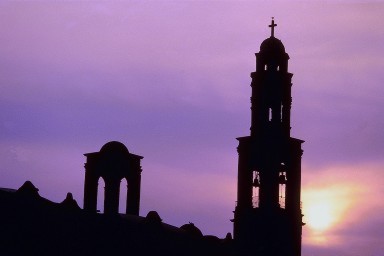| The
colonial sphere and arena of Roman Catholic evangelism in the Americas. |
 |
|
Church
of St. James, Mexico City
|
The planting of
Roman Catholicism in what would come to be known as Latin America began
in earnest with the arrival of Hernando Cortez in Mexico in 1519 and
of Francisco Pizarro in Peru in 1532. Hispanic Roman Catholicism resembled
the reforming Catholicism of the Iberian peninsula in the sixteenth
century. It was Spanish in temper, Tridentine in theology, and strictly
subordinated to the interests of the state. Jesuit,
Franciscan, and Dominican
missionaries, however, each introduced their own accents. Jesuits were
remarkable here as elsewhere for their devotion to the papacy. All three
Orders attempted to contain native populations in enclosed missionary
villages in order to protect the native population from the oppressive
and exploitative behavior of Spanish colonists. The Dominican Bartolomé
de Las Casas emerged as the most formidable champion of the native
populations.
|
